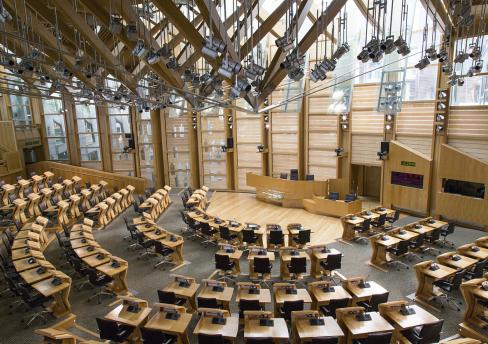The United Kingdom's environmental legislation and policy has been profoundly affected by its former membership of the European Union. EU environmental legislation and enforcement is recognised as being some of the strongest in the world, with much of UK environmental protections being derived from EU law.
The UK's environmental laws and policies which were based on EU law did not dissipate following the end of the transition period on 31 December 2020. The European Union (Withdrawal Agreement) Act 2020 ensured that at the end of the transition period, a new body of UK law, known as retained EU law, was preserved and converted into UK law. In particular, this includes EU-derived domestic legislation as well as directly applicable EU law.
Nonetheless, new legislation is being considered in order to account for the UK's exit from the EU's environmental policy and legislative structures. Such legislation is necessary in order to fill the governance gap and will also introduce measures to tackle environmental challenges. As there is scope for each devolved nation to take different environmental policy positions, the approach taken north and south of the border will differ in several key respects.
The Legislation
The UK government has expressed a commitment to high environmental standards following its departure from the EU. As part of this commitment, the Environment Bill ("the Bill") has been introduced into Parliament and is presently at its Report Stage. The Bill puts in place new governance structures for managing and improving the environment and makes provisions regarding long-term environmental targets and improvement plans. The majority of the Bill applies to England only, however certain sections extend to Scotland, Wales and Northern Ireland.
In Scotland, the UK Withdrawal from the European Union (Continuity) (Scotland) Act 2021 ("Continuity Act") received Royal Assent on 29 January 2021 and aims to enable the alignment of Scottish law with EU law going forward. This applies to areas which are devolved to Scotland, including the environment.
Environmental Principles
The Continuity Act contains provisions to ensure the continuation of the EU's guiding principles on the environment in Scotland - precautionary, preventative, rectification at source and polluter pays. The Continuity Act provides that the Scottish Ministers must have regard to these principles in developing policies, and other public authorities must also have regard to them in developing plans and programmes. The intention is that these principles will continue to influence Scottish law and policies, allowing Scotland to benefit from European standards.
In contrast, the Bill adds a fifth principle - integration of environmental protection in the making of policies. However, the Bill is silent on how these principles are to be interpreted. Only Ministers of the Crown are affected and they are required to have due regard to a policy statement prepared by the Secretary of State, rather than to the principles themselves.
Dynamic Alignment
The Scottish Government has expressed a desire to pursue a policy of "dynamic alignment" whereby Scotland adapts and replicates its policy agenda to keep in line with the EU. The Continuity Act provides the Scottish Government with the power to make provision corresponding to EU law in keeping with "dynamic alignment".
The UK Government, by contrast, does not intend to align English standards with EU standards, and there is therefore no equivalent in the Bill given the different view being taken.
Environmental Watchdogs
In order to replace the functions of the European Court of Justice and the Commission in monitoring and securing compliance with environmental law, the Bill establishes the Office of Environmental Protection ("OEP"). The main role of the OEP will be to monitor progress on environmental improvement plans and to implement environmental law.
The OEP is not a UK-wide body; in Scotland, the Continuity Act establishes a new oversight body called Environmental Standards Scotland ("ESS") to replace the system of environmental governance provided by the institutions of the EU. The role of ESS will be to monitor and investigate:- (i) public authorities' compliance with environmental law; and (ii) the effectiveness, implementation and application of environmental law. Whilst ESS shares some features with OEP, ESS will enjoy more independence by reporting to the Scottish Parliament and will be given more direct enforcement powers.
Being at its Report Stage, the Bill is still subject to change, however it is clear that differences in environmental governance in the UK and Scotland have already emerged and this will be an area to watch in upcoming years.
The content of this webpage is for information only and is not intended to be construed as legal advice and should not be treated as a substitute for specific advice. Morton Fraser LLP accepts no responsibility for the content of any third party website to which this webpage refers. Morton Fraser LLP is authorised and regulated by the Financial Conduct Authority.










